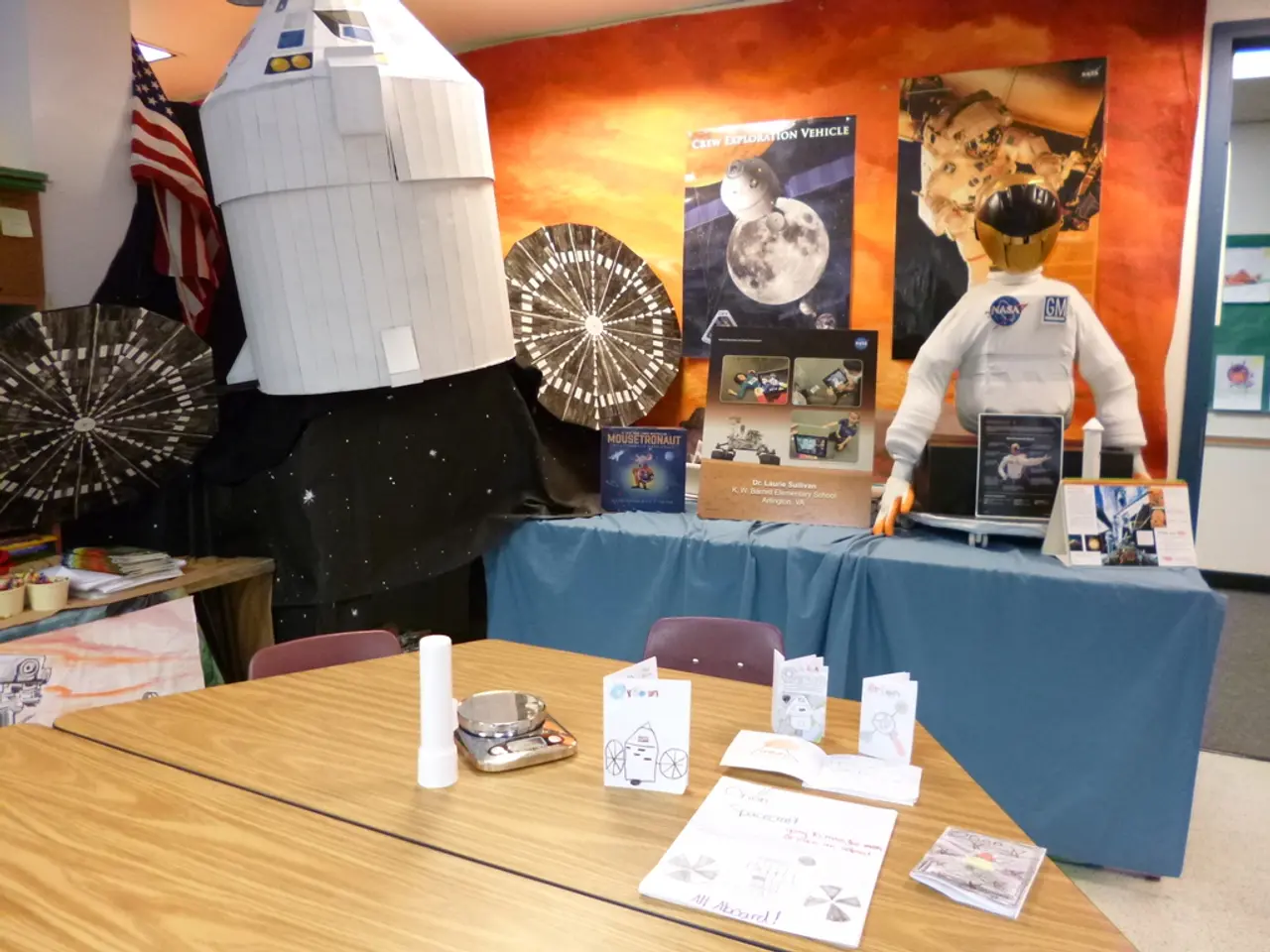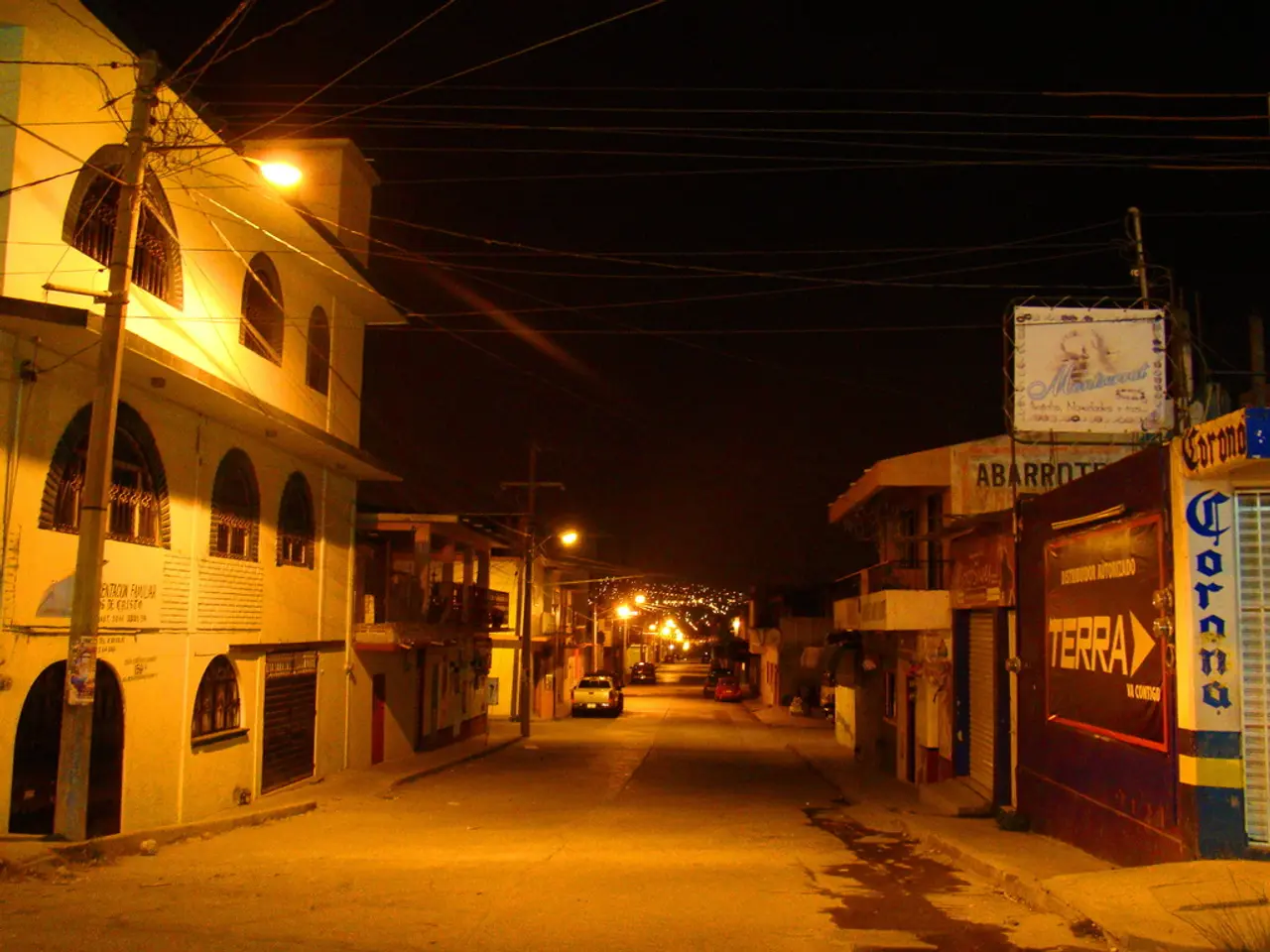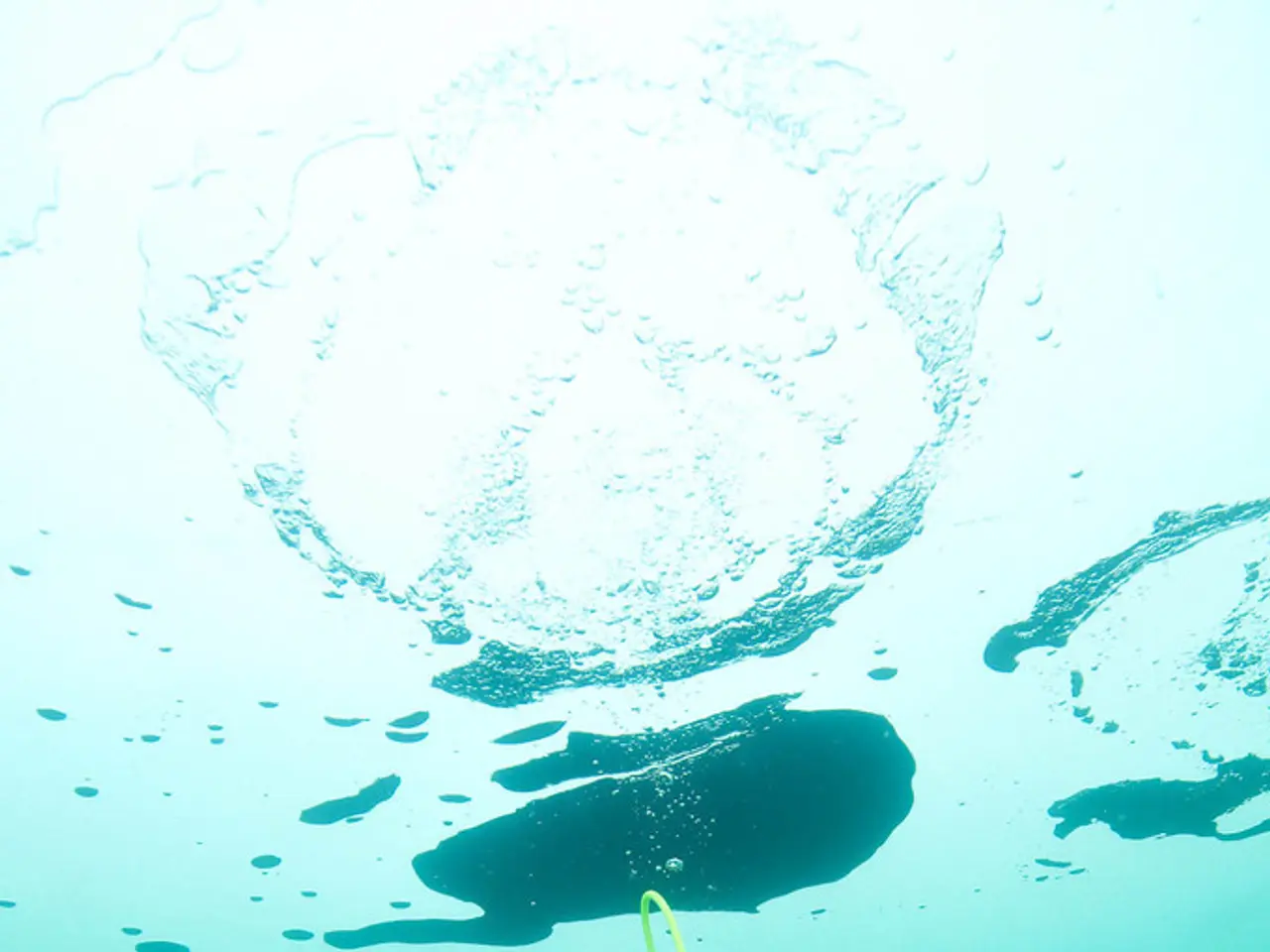Space manufacturing facility from Britain commences orbital journey during a trial run
In a groundbreaking development, the UK's Space Forge satellite, named ForgeStar-1, has been launched into orbit on June 27, 2025. The satellite was carried aboard SpaceX's Transporter-14 rideshare mission from Vandenberg Space Force Base in California [4][2][3]. This marks a significant milestone as ForgeStar-1 is the first British satellite designed to manufacture advanced materials in space under conditions unavailable on Earth, such as microgravity and ultra-clean vacuum [2][4].
ForgeStar-1's mission is primarily a proof-of-concept aiming to validate key in-space manufacturing technologies and to test pioneering return-enabling technologies like the proprietary Pridwen heat shield, on-orbit aerodynamic controls, real-time orbital tracking, and predictive re-entry mapping software called Aether [1][2][4]. The satellite will not return materials to Earth; it will be deliberately burned up in the atmosphere after completing its experiments, partly to demonstrate the safety mechanism in case of re-entry failure [1][3].
The company is currently in the phase of completing the satellite's health checkout and preparing to ignite the manufacturing platform onboard to start creating materials in space for the first time ever with this satellite [2][4]. Looking ahead, Space Forge plans to launch ForgeStar-2, the successor satellite which will be the first designed to manufacture semiconductors and return them safely to Earth. ForgeStar-2 aims to produce materials with enough value to exceed the cost of the satellite's launch, and Space Forge envisions eventually operating a fleet of 10-12 satellites annually, scaling up to over 100 launches per year in the long term [1][3].
Joshua Western, CEO and co-founder of Space Forge, described the launch as the start of a "new era" for materials science and industry. He believes that the satellites developed by Space Forge will utilise the zero-gravity, ultra-cold, vacuum environment of space to produce tiny crystals of a higher quality than could ever be made otherwise [5]. The crystal "seeds" produced by ForgeStar-1 can be used to grow larger crystals for ultra-efficient computer chips, which could potentially halve the time it takes to charge an EV [1].
This is the first time the UK has sent a spacecraft into orbit to produce new materials in space, according to Space Forge [6]. However, Space Forge faced a setback in 2023 when its first satellite was lost due to an anomaly in Virgin Orbit's satellite launcher [7]. To accelerate the development of ForgeStar-2, Space Forge recently secured $30mn in a funding round led by the NATO Innovation Fund [8].
Western compared the technology to a sourdough starter, suggesting it has the potential to grow something much bigger [9]. As ForgeStar-1 actively starts to produce materials in space now, the first supermaterials expected to be returned to Earth will be produced by ForgeStar-2, which is still in development and scheduled for launch after ForgeStar-1 completes its mission [1][2][3][4]. The mission will deliver critical test data, telemetry, and validation needed to support future in-space manufacturing missions.
The groundbreaking ForgeStar-1 satellite, now in orbit, is primarily a proof-of-concept, aiming to validate key in-space manufacturing technologies and test pioneering return-enabling technologies. Alongside this, Space Forge company plans to launch ForgeStar-2, the successor satellite, which will be the first designed to manufacture semiconductors and return them safely to Earth, utilizing advancements in space technology.

![Guide on DoorDash: Strategies for Complimentary Delivery and Optimizing Rewards [2025 Edition]](/en/content/images/size/w1280/format/webp/20250707222827_food-delivery-services-doordash.jpeg)


